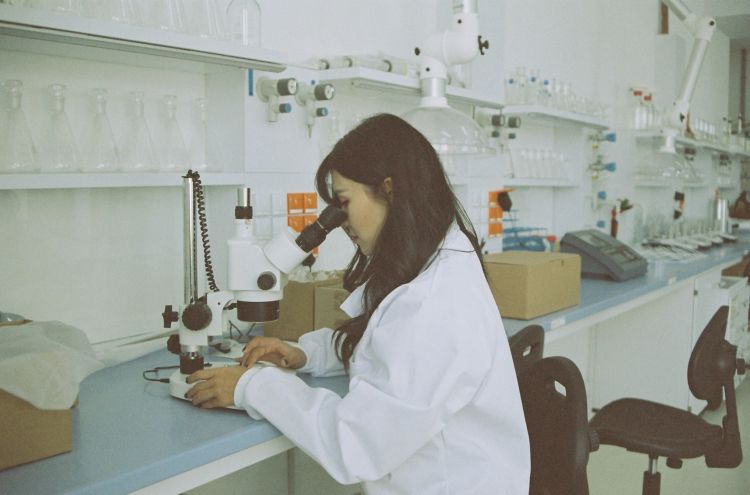Georgia Life Sciences: Growth, Investment, and Future Potential
Hypepotamus: Georgia Life Sciences: Growth, Investment, and Future Potential
Maija Ehlinger: February 14, 2025
Georgia Life Sciences: Growth, Investment, and Future Potential - Hypepotamus
For the last 35 years, Georgia Bio, the state’s main advocacy and business leadership organization, has worked to support pharmaceuticals, biotech startups, medical device companies, universities, research institutes, and government groups who are growing in the Peach State.
The organization recently announced a rebrand with its new name, Georgia Life Sciences. The name better reflects the organization’s “renewed focus and support” for the state’s growing life sciences community, CEO Maria Thacker Goethe told Hypepotamus.
The State of Life Sciences In Georgia
Close to 4,000 life sciences companies are building in the State of Georgia currently, and the industry is the “highest paying and fastest growing [sector] in the state,” according to Thacker Goethe.
“Georgia’s sizable, fast-growing, and high paying life sciences sector is critical to our economic growth. Surrounding states, and beyond, have prioritized and continue to invest in life sciences for many reasons, in large part because relative to other industrial sectors, the extended domestic supply chain of the U.S. industrial bioeconomy generates outsized secondary economic benefits,” she added. “The industry provides a strong mix of scientific and production jobs providing varied employment opportunities, and the biggest gap in the sector’s workforce require a technical degree or even some basic certifications out of high school. Life sciences is a very large sector that encompasses human health but also industrial bioproducts, biofuels, biofeedstocks, medical devices, and much more. According to BIO’s 2024 Economic Impact study, Georgia is in the top 10 states for this sector, and if we can make some progress to grow economic incentives and train our workforce, we will continue to be a leader.”
Georgia’s growing success in the life sciences stems from the state’s academic research institutions, substantial corporate investment, and strategic economic development initiatives.“Georgia is becoming a critical player in biopharma manufacturing,” Thacker Goethe told Hypepotamus, highlighting the presence of industry giants like Takeda, Boehringer Ingelheim, and Johnson & Johnson.
She also pointed to the state’s expanding medical device and diagnostics sectors, thanks to close collaborations with research powerhouses like Georgia Tech and Emory University. The state’s agricultural roots also provide fertile ground for the ‘agbio’ sector, with institutions like the University of Georgia conducting new research in precision agriculture and crop resilience.
When asked to describe the state of the life sciences’ community in Georgia, Thacker Goethe emphasized the state’s potential in becoming a hub for regenerative medicine companies, smart medical devices, and CDMOs (Contract Development and Manufacturing Organizations).
“With increasing demand for renewable materials and biofuels, Georgia’s industrial biotech sector should expand rapidly, leveraging its agricultural strengths and infrastructure. Breakthroughs in CRISPR-based crop modifications may drive Georgia’s role in creating resilient, high-yield crops to combat climate change and food security challenges,” she added.
Potential For Local Growth
But challenges remain.
Access to capital is a primary concern. While venture capital is increasing, securing adequate funding for life sciences startups can be difficult. Thacker Goethe pointed out the need for more wet-lab spaces, incubators, and biomanufacturing facilities to accommodate growing companies. She also warned that neighboring states are making targeted investments in life sciences and could potentially narrow the gap.
“One challenge we are working to address: building a community coalition to establish a Small Business Innovation Research (SBIR) and Small Business Technology Transfer (STTR) matching grants program in Georgia. We are the only state in the southeast that does not have this program (Alabama established theirs a couple of years ago),” she added. “The federal SBIR/STTR program provides early funding for research and development. However, these grants often don’t cover later-stage activities like prototyping, manufacturing, regulatory approvals, or market entry. State matching programs provide the additional capital needed to help startups move beyond research and into product development and commercialization, enabling companies to bring innovative solutions to market faster. We will lose Georgia-grown innovations to others states if we are unable to adopt a matching program.”
National headwinds can also hamper industry growth, according to a recent statement Georgia Life Sciences published around the recent National Institutes of Health (NIH) guidance to limit funding for medical and life sciences research at universities.
You can read the full statement here.





